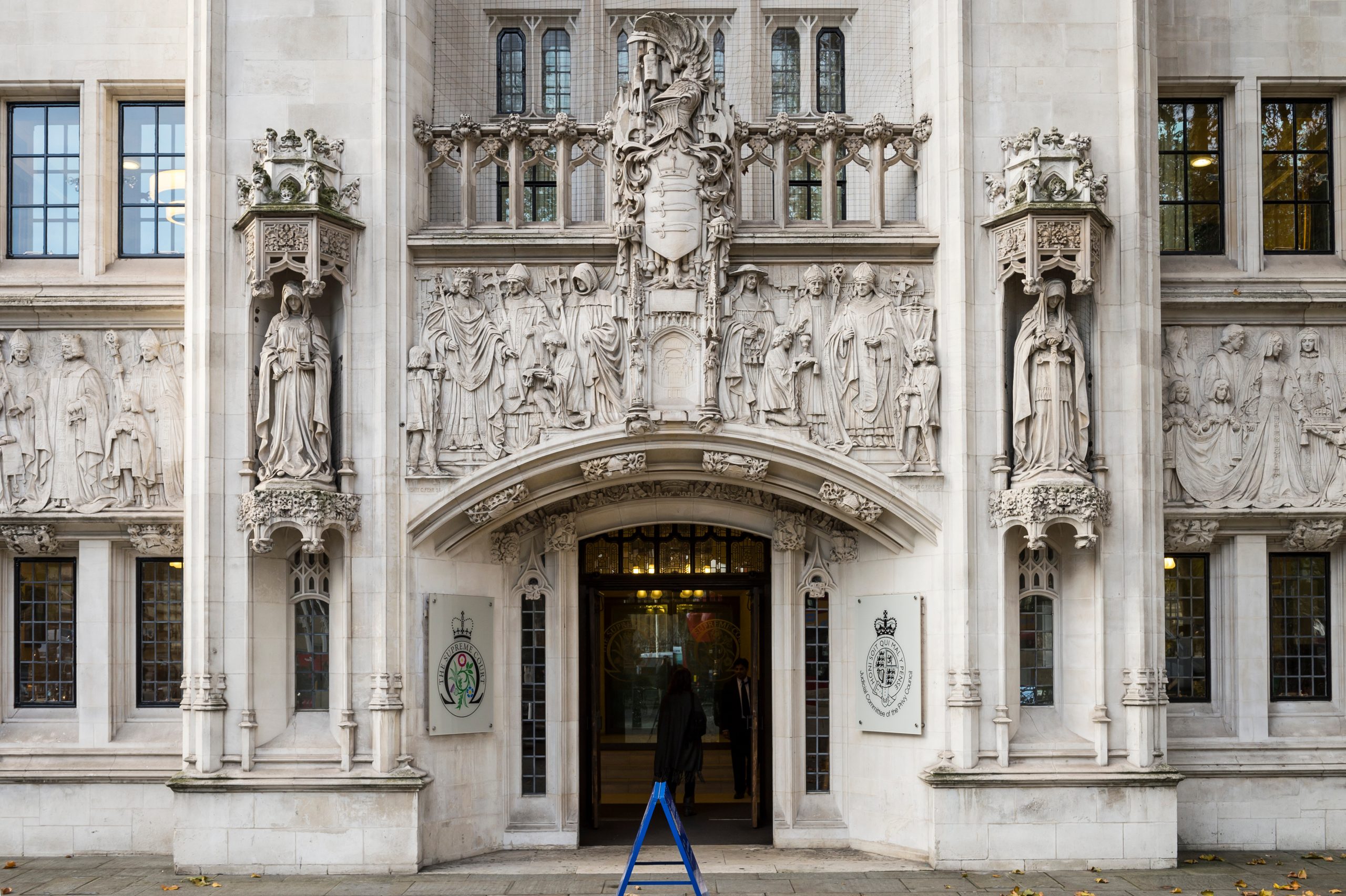
UK Supreme Court’s ruling in Shamima Begum case is inconsistent with human rights
26th February 2021
(London, 26 February 2021) – Today, the UK Supreme Court has disappointingly ruled that Shamima Begum, who travelled to Syria as a school child in the context of the Islamic State (IS) conflict, will not be permitted to enter the UK to challenge the British Government’s decision to strip her of her British citizenship. In reaction, Rights and Security International (RSI) and the Institute of Statelessness and Inclusion (ISI) have expressed significant concerns about the judgment’s potential impact on the right to a fair trial and the government’s ability to deprive individuals of their citizenship without adequate safeguards.
In a potential case of online grooming, child trafficking and sexual exploitation, Begum, who was years below the legal age of marriage in both the UK and Syria, travelled to Syria in 2015 and soon afterwards became the ostensible ‘wife’ of an Islamic State member. Since at least 2019, she has been living in camps for women and children displaced by the conflict with IS. UN experts have concluded – and lower UK courts have accepted – that conditions in the camps amount to inhuman or degrading treatment in violation of human rights standards. RSI has documented the life-threatening conditions in Roj, the camp where Begum is living, as well as a larger facility known as al-Hol.
‘For too long, the UK government has refused to see Begum for what she is – not a “bride”, but a victim of ongoing inhuman and degrading treatment and a potential victim of child trafficking,’ said Sarah St Vincent, Executive Director of RSI. ‘It is disappointing that today’s judgment did not recognise Ms Begum’s vulnerability or acknowledge the fact that the deprivation decision will render her stateless.’
The British Government has the power to deprive British nationals of their citizenship without any prior judicial oversight; the decision to deprive is left entirely to the discretion of the Home Secretary, although it is possible to challenge the decision before the courts. Deprivation powers have been widely criticised for allegedly discriminating against minorities and those of migrant heritage. According to UK and international law – as articulated in ISI’s Principles of Deprivation of Nationality as a National Security Measure – the deprivation of nationality cannot be arbitrary or discriminatory and must not leave the person deprived stateless. Further, the appropriateness of deprivation decisions should be assessed against their impact on the enjoyment of other fundamental human rights, including the freedom from cruel, inhuman or degrading treatment of punishment, the prohibition of refoulement, the right to private and family life and the rights of the child. The use of safeguards as well as the right to a fair trial are of central importance to assessing whether a decision to deprive someone of their citizenship is arbitrary.
‘A number of states including the UK cherry pick which of their international obligations they will adhere to, and which they will ignore. Such actions undermine the very concept of citizenship and the rule of law’ said Amal de Chickera, Co-Director of ISI. ‘In this case, the Supreme Court affords a concerning level of deference to the executive on matters of national security and has, in essence, permitted a nationality deprivation order to remain unchallenged indefinitely, with the (former) British citizen impacted by the decision left in cruel, inhuman and degrading conditions and with no access to justice’.
Multiple international legal and security experts, including UN human rights leaders, other States, and the autonomous authorities of the North East Syrian region have called on countries such as the UK to take back their nationals who are living in the camps, including those they have deprived of citizenship. However, many countries have declined to do so in any significant numbers. Several of these countries have stripped women in the camps of their citizenship, with an unknown impact on the women’s children.
RSI has submitted several requests under the Freedom of Information Act for access to the number of citizenship deprivations made by the UK Government since 2018. These requests have repeatedly been refused.
Before the court, Begum’s lawyers argued that she could not have a fair and effective appeal from a decision depriving her of citizenship from her position in the camps in North East Syria, and must be granted leave to enter the UK. In Roj camp, where Begum now resides, women are allegedly prohibited from owning a mobile phone and risk punishment if found with one, making communications with lawyers difficult or impossible. The UK government responded that allowing Ms Begum to return to the UK would pose significant risks to national security.
When Begum left the UK, she was 15 years old. In Syria, she was purportedly ‘married’ to an IS fighter. The legal age for marriage in Syria and the UK is 18 (except in Scotland, where it is 16). When journalists found her living in al-Hol camp in 2019, she was pregnant with her third child. Her first two children both reportedly died before reaching the camp. Shortly after the Home Secretary decided to deprive Begum of her citizenship, her third child died, reportedly from pneumonia.
Under the Council of Europe’s anti-trafficking convention, to which the UK is a party, ‘the recruitment, transportation, transfer, harbouring or receipt of a child [under 18] for the purpose of exploitation’, including sexual or labour exploitation, qualifies as trafficking. In law and policy, the UK has expressed a commitment to protecting and assisting victims of trafficking.
‘Throughout this case, the government has acted with callous disregard for the vulnerability of Ms Begum as a potential victim of trafficking and cruel, inhuman and degrading treatment,” St Vincent concluded. ‘Rather than stripping Ms Begum and others of their British citizenship, the Government should be bringing vulnerable people home from the camps and providing them with the necessary rehabilitation support.’
ENDS
